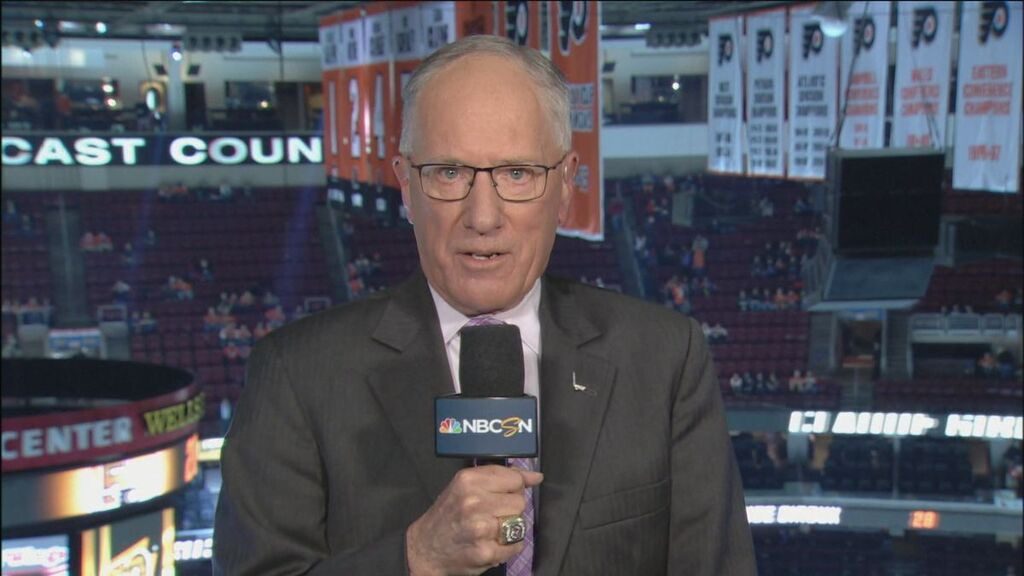After 47 years of broadcasting the NHL in America, iconic sportscaster Mike “Doc” Emrick announced last week that he would retire after an illustrious career. In the following days, tributes have been pouring in from players, executives, fans and other broadcasters for the 74-year-old legend.
In different ways, seemingly everyone familiar with Emrick has praised him for his work and for the way he treated others.
Among the NHL media, there has been a clear trend in the sentiments shared about Emrick. He has been exceptionally helpful and supportive of all of his peers, helping many of them develop into the broadcasters they are today.
In a 2017 column, Richard Deitsch, then a writer for Sports Illustrated, discussed how Emrick has been helping young sports broadcasters over the last several years. During visits to college campuses and other public appearances, he offers to have students send him audio samples of their work. He listens to the recordings and offers feedback during the summer.
“My wife Joyce and I are always on vacation in Michigan and I can usually listen to one or two a day,” Emrick said. “I usually email or handwrite my thoughts to them while I am listening so it’s more stream-of-consciousness than anything else. Some send five to ten minutes, others an hour.”
Emrick, who holds a Ph.D. in communications, noted that Washington Capitals announcer John Walton and Edmonton Oilers broadcaster Jack Michaels were among those who have taken him up on that offer throughout the years. Both eventually worked their way into prominent broadcasting roles.
Hearing those stories as a member of a student media outlet is remarkable. For the preeminent hockey announcer in the country, who travels nine months of the year calling games, to go out of his way during the offseason to help young broadcasters allows for unprecedented access to one of the most well-known sports media figures in the country.
Among the younger announcers already working in the NHL, stories have poured in about Emrick’s unsolicited support of their work. Brendan Burke, the television voice of the New York Islanders, recounted a story on Twitter from his first year with the team in 2016.
After calling a game-winning overtime goal in his third broadcast with the Islanders, Burke checked his email and found a message from Emrick applauding his work on the call.
“I’ve never seen someone as universally loved as Doc,” Burke said to ESPN’s Greg Wyshynski. “I was going to go on Twitter and share some stories before I looked and realized everyone had a story like mine to share. It made me feel less special, and made him feel more special to me at the same time.”
Regardless of who NBC chooses to replace Emrick, they will probably do a good job in the booth. However, there is only one Doc. The Stanley Cup Finals won’t have the same feel without his signature calls and extensive vocabulary. Away from the broadcast booth, it is hard to imagine another media personality in any sport building the level of respect that Emrick earned throughout his career.
As he enters retirement, hockey fans will hear significantly less from Emrick — however, his legacy will live on. It is impossible to measure the influence he had on other broadcasters around the league and the impression he made on countless numbers of young broadcasters he has advised over the years.



